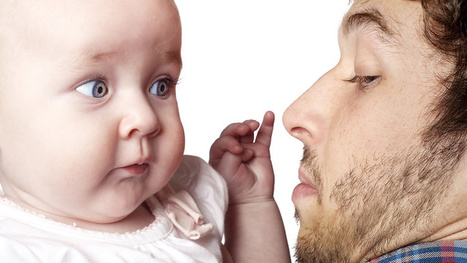
This article comes from The Telegraph UK. There are more women - it seems - speaking up about the issues and problems facing men. This is true in the U.S. as much as it is in the UK. One could scan through the articles on this blog and make the same conclusion.
Why aren't men speaking up on gender issues?
From health and education to domestic violence, 2013 saw several individuals speak up about the problems facing men. But why were those people mostly women?
By Glen Poole
01 Jan 2014

Illustration by Jacqui Clark
Back in January 2013, the Universities Secretary, David Willetts, caused a flutter of controversy by proposing that white working class boys should be considered in the same way as ethnic minorities in university admissions.
The radical idea that men and boys need special treatment tends to unite people on the left and right in howls of derision as meritocratic conservatives baulk at the thought of creating “yet another minority group” and PC liberals rally to remind us that men don’t have any problems because men have all the power.
Yet as the year went by, the cries of “what about the men?” have continued to be heard in many quarters as we try to make sense of the overwhelming evidence that men and boys don’t have it all.
Mary Curnock Cook, the head of the university admissions service, Ucas, appeared to back Willetts, saying she was “very worried about the gap between males and females” and “beginning to look at men as looking more like the disadvantaged group”.
And it’s not just the world of education where men and boys are being attributed with minority status. The news that men are more likely to die from eight of the world’s top 10 most burdensome diseases was greeted by Dr Sarah Hawkes at the Institute of Global Health as more evidence that men are being ignored. According to Hawkes:
“When it comes to health, contrary to what most people would expect, men actually suffer at least equally and usually more from gender norms and gender behaviours than women do and have less access to the means to mitigate those norms.”Meanwhile, Jane Powell, CEO of the UK’s only national male suicide prevention charity, CALM, told BBC Radio 4’s today programme that the Department for Health was failing to target suicide prevention work at men, because unlike other special interest groups, “we don’t really see men as needing help in anyway or as being vulnerable”.
Even the high-profile divorce lawyer Marilyn Stowe spoke up on behalf of men this year when she slammed the Ministry of Justice for excluding men from its legal aid guidance to victims of domestic violence.
You may have noticed by now that 80% of the voices quoted so far belong to women. When it comes to speaking out on these issues, it seems that men are suffering from “gender issue laryngitis” a term coined by the advertising giants M&C Saatchi last month, in their International Men’s Day report on modern manhood.
This “lack of voice” is a common complaint of “minority groups” and while the majority of people in positions of public power are still undeniably male, the personal concerns of the majority of men and boys, often remain unheard.
In October this year, Aftab Khan, father of four-year old Hamzah Khan who was allowed to starve to death in Bradford by his mother, complained that the police and social services ignored his warnings, saying:
“Nobody listens to the male in this country, nobody. There’ll be loads of fathers like me, all over, but nobody listens to us, nobody listens to the father and look what’s happened. I’ve got a dead son.”
One such father hit the front pages this month after being denied a relationship with his daughter for 12 years, despite having 82 court orders directing his ex to stop denying him access. While the unnamed man's story was told, the secrecy of the family courts demand that his real voice will never be heard by the public.
One area where more men’s personal stories are beginning to be heard is in popular culture. When Coronation Street ran a storyline about the character Tyrone Dobbs being abused by his wife, the charity ManKind reported that calls to its helpline trebled.
Survivors Manchester, another men’s charity, is also helping Hollyoaks develop a storyline about male rape and has already reported that more male victims of sexual abuse got help this year thanks to the publicity generated by Jimmy Savile and Operation Yewtree.
So while the personal has yet to become political for most men, more and more people are finding ways to grapple with the political challenges presented by the personal problems that men and boys face.
Personally I don’t believe defining men as a new “minority group” will help us, but claiming that we live in a meritocracy where everyone has an equal opportunity is as naïve as believing we can magically achieve equal outcomes for every man and woman.
David Willetts was right when he said our education system “seems to make it harder for boys and men to face down the obstacles in the way of learning”. Sometimes it takes collective action to ensure that every individual has an equal opportunity to thrive.
Men aren’t a minority, of course, but there are clearly areas where we don’t do as well on average as women and girls and in 2013 it became a little bit easier for people to speak out and say we could be doing a lot more to help all men and boys prosper.
Related Articles
~ Glen Poole is Director at the consultancy Helping Men and author of the book Equality For Men
- Do we need International Men's Day? 19 Nov 2013
- Why do women initiate divorce more than men? 08 Oct 2013
- Face up to it: real men get depressed 21 Oct 2013
No comments:
Post a Comment